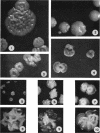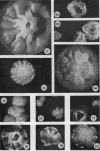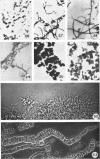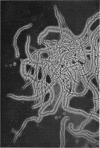Abstract
Gordon, M. A. (New York State Department of Health, Albany). The genus Dermatophilus. J. Bacteriol. 88:509–522. 1964.—Seventeen strains of Dermatophilus originating in skin lesions of cattle, sheep, horses, deer, and man were compared as to conditions for growth, colonial characteristics under varying conditions, microscopic morphology, and biochemical reactions. All grew well aerobically at 37 C and were facultatively anaerobic. They were morphologically similar in both gross and microscopic appearance, and most produced motile spores. Stable gray variants often appeared among the orange-yellow “wild-type” colonies. Acid without gas was produced consistently from glucose and fructose, and transitorily from galactose, but was produced from none of eight other carbohydrates except belatedly by some strains from maltose. Almost all strains hydrolyzed casein, most of them digested BCP milk with varying rapidity, and the majority liquefied gelatin, but there was considerable variation in this last property. Differences crossed both host and geographic lines. It is concluded that all isolates can be accommodated in the species D. congolensis Van Saceghem 1915, emend. 1916, 1934, with D. dermatonomus and D. pedis falling into synonymy.
Full text
PDF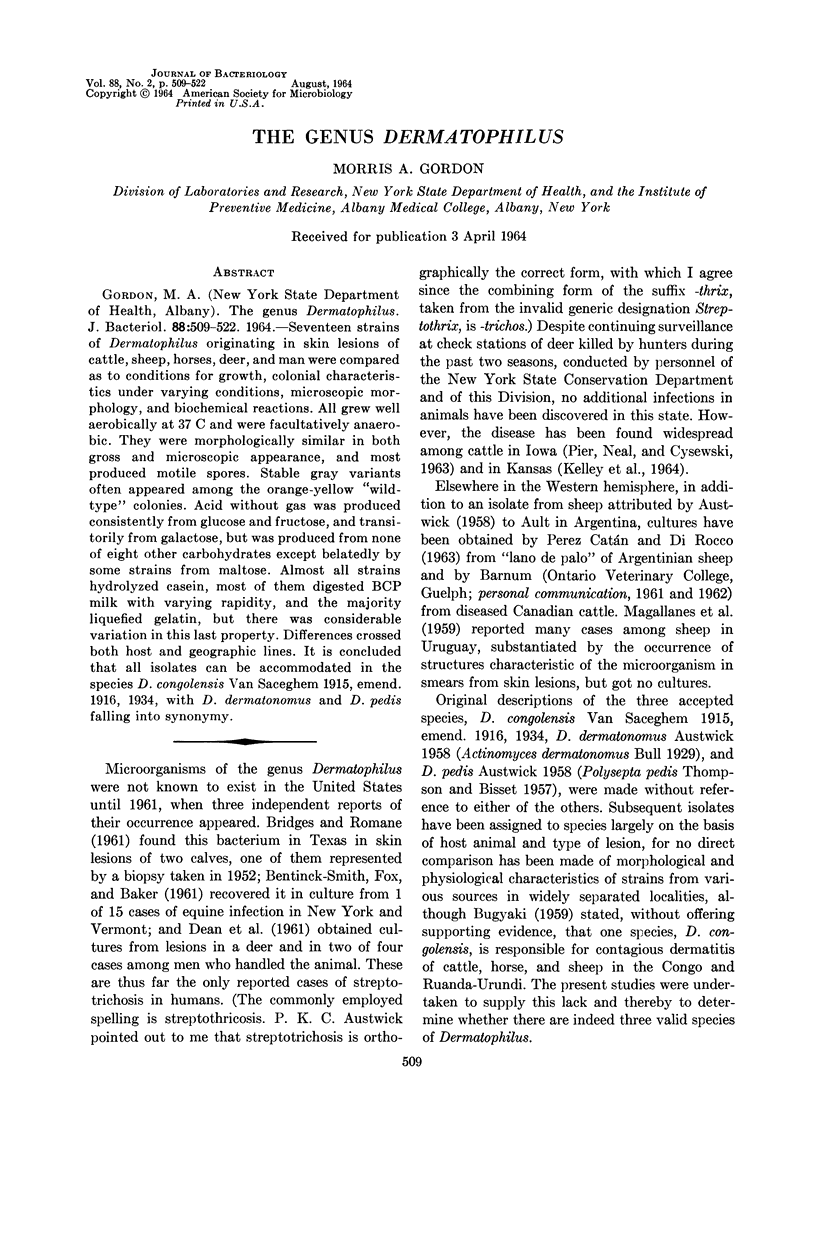
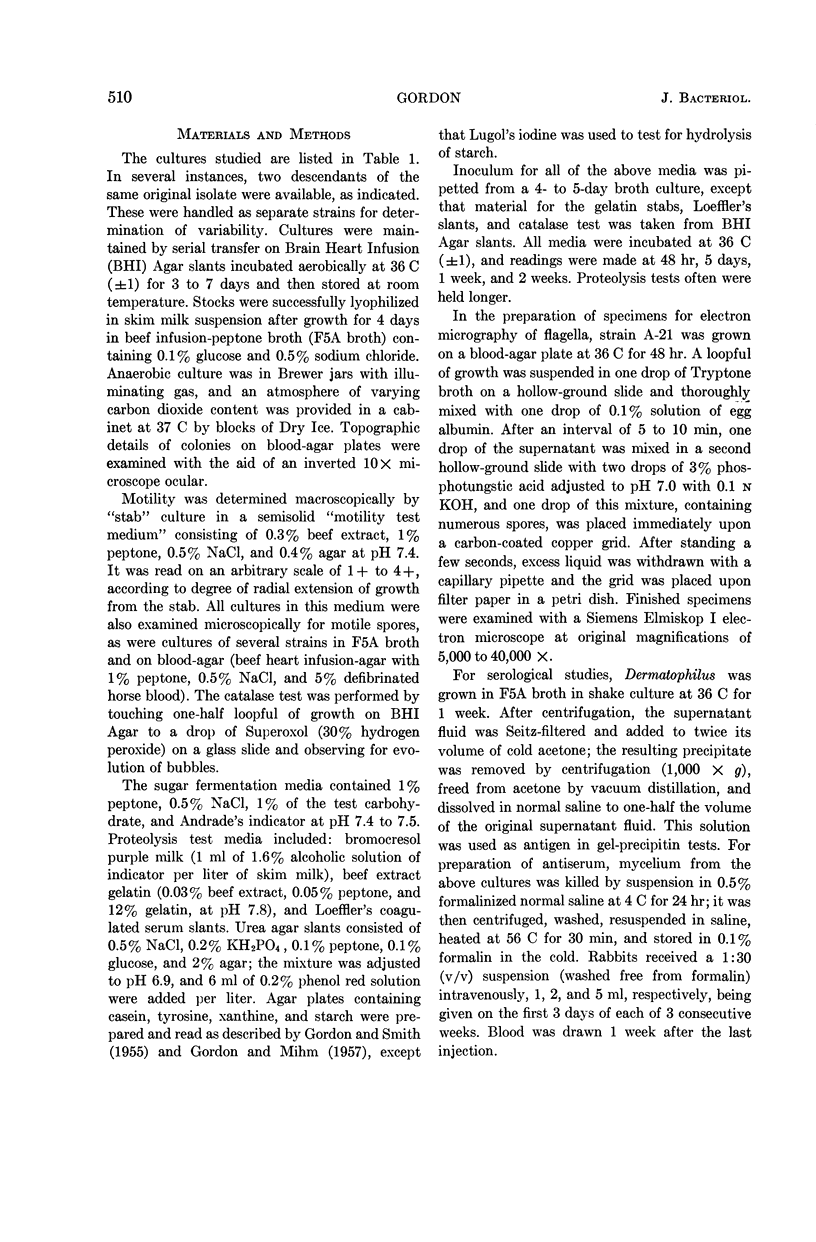
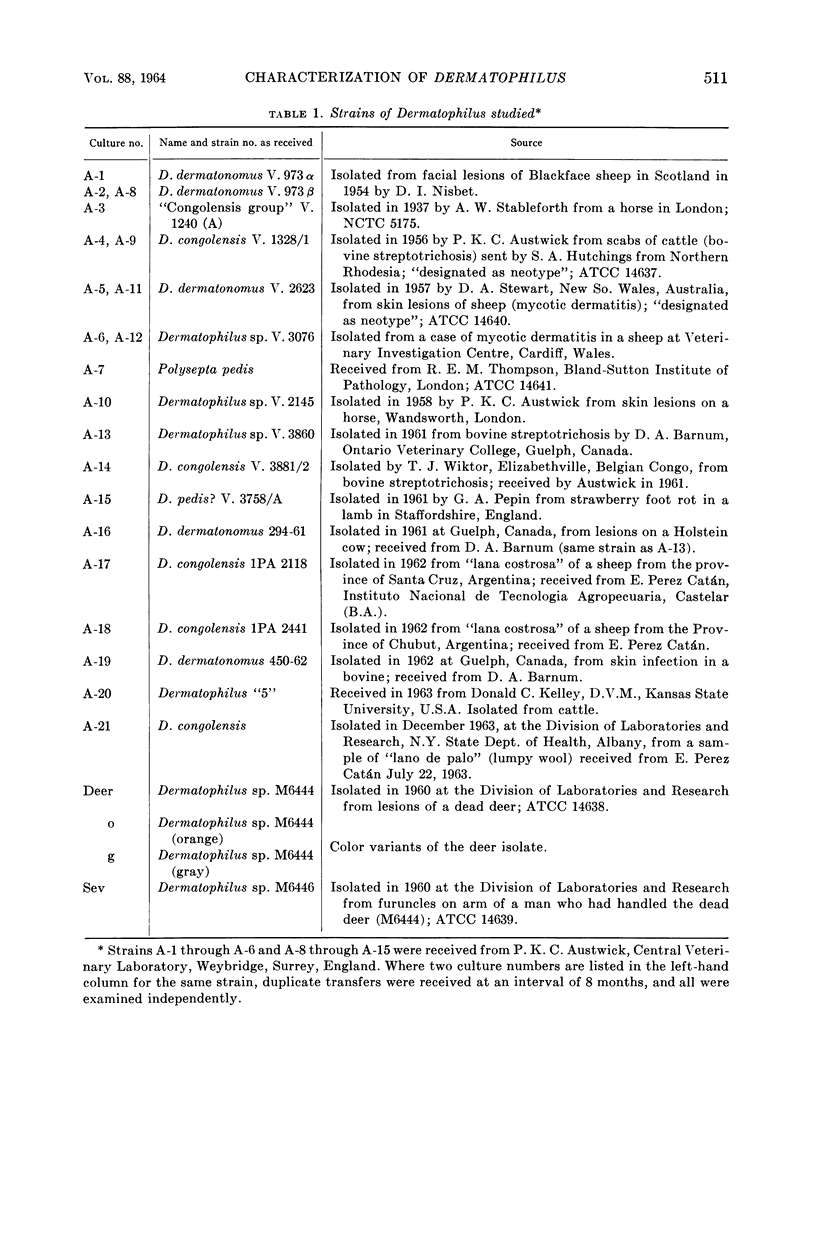
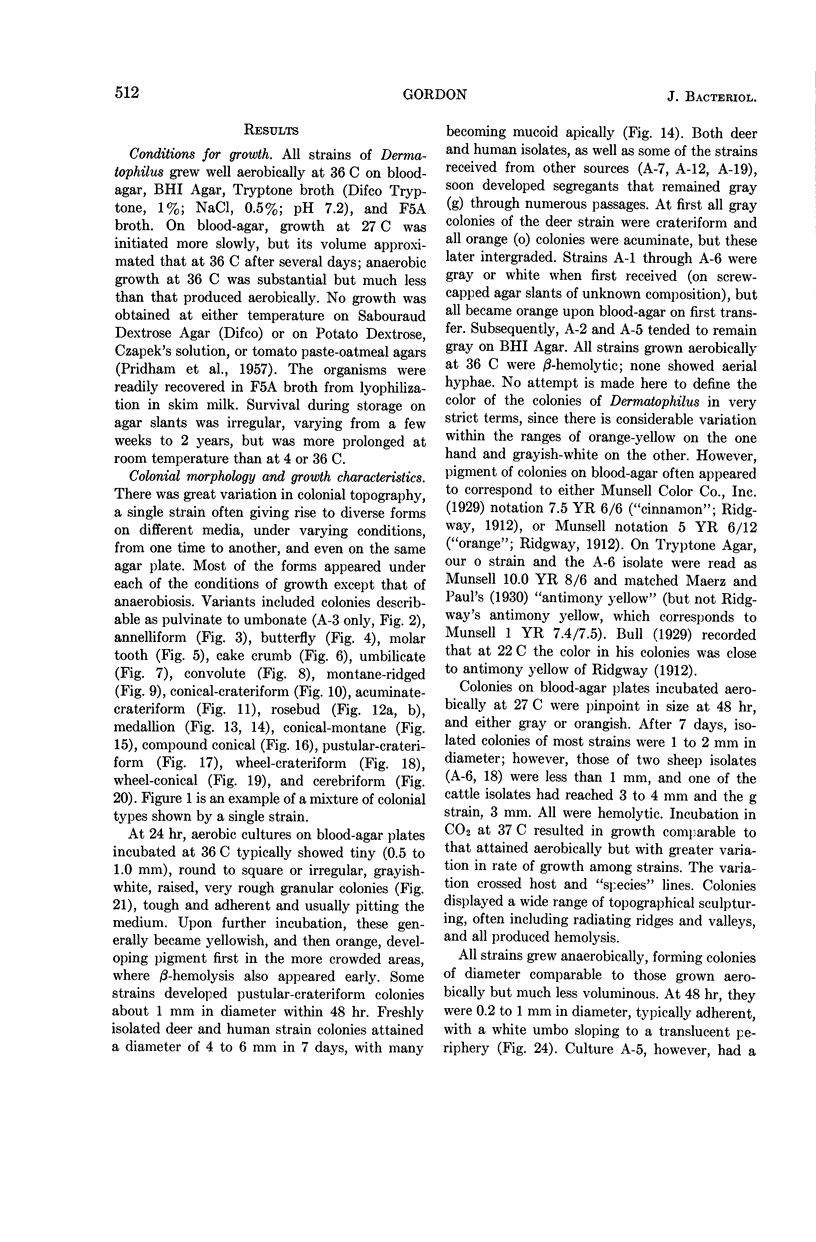
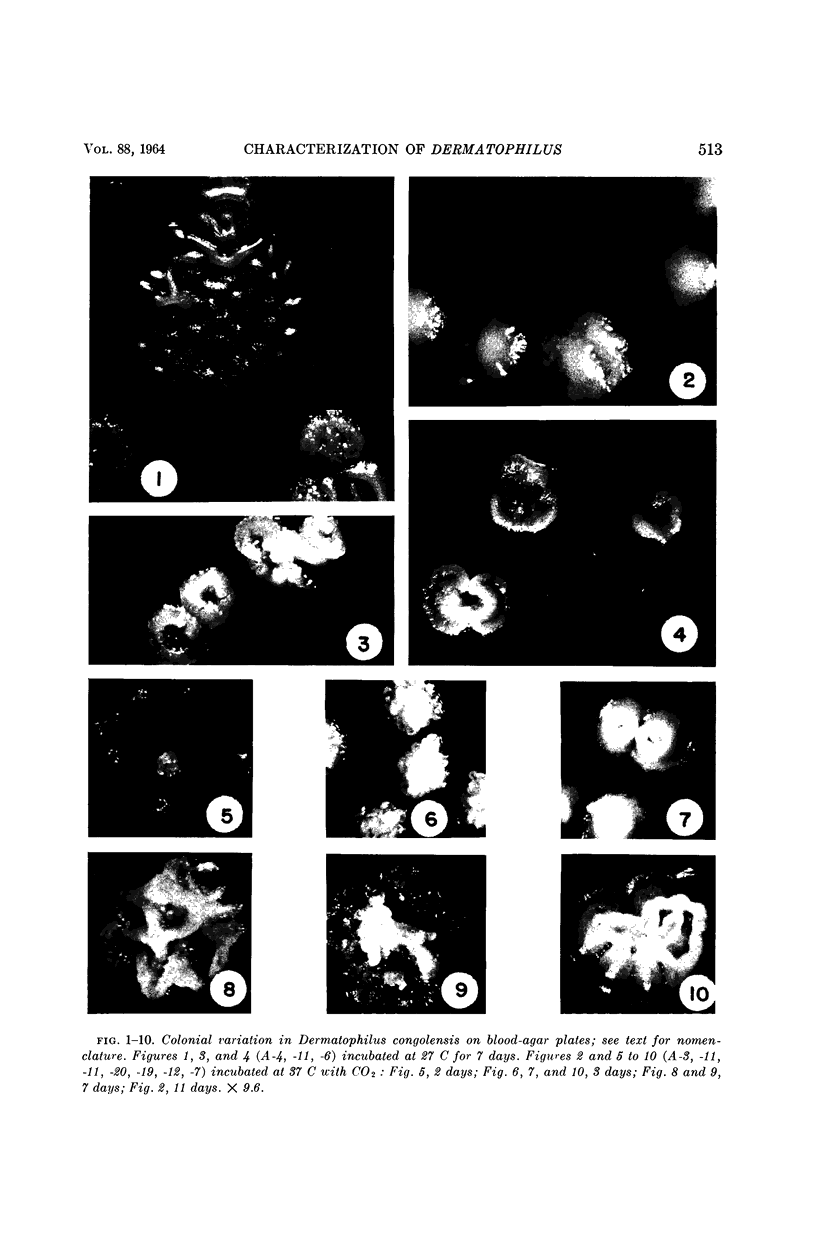
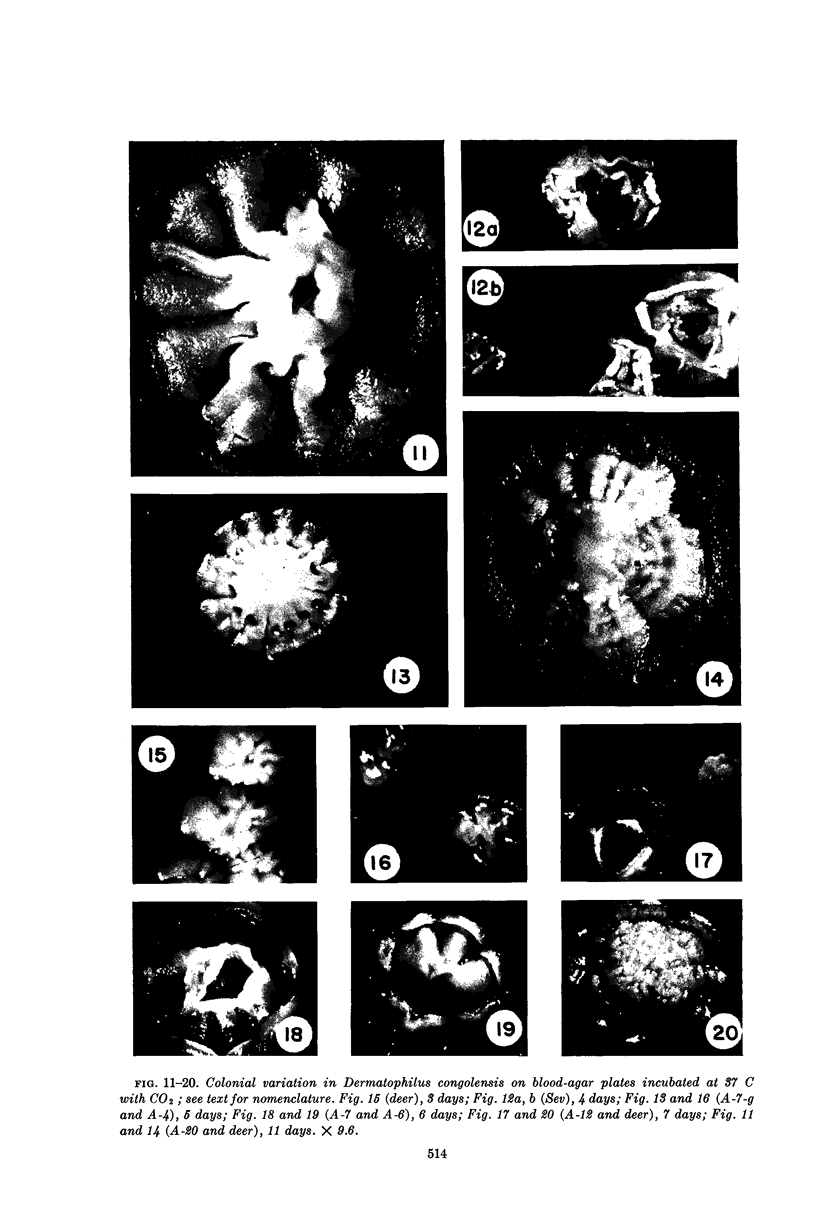
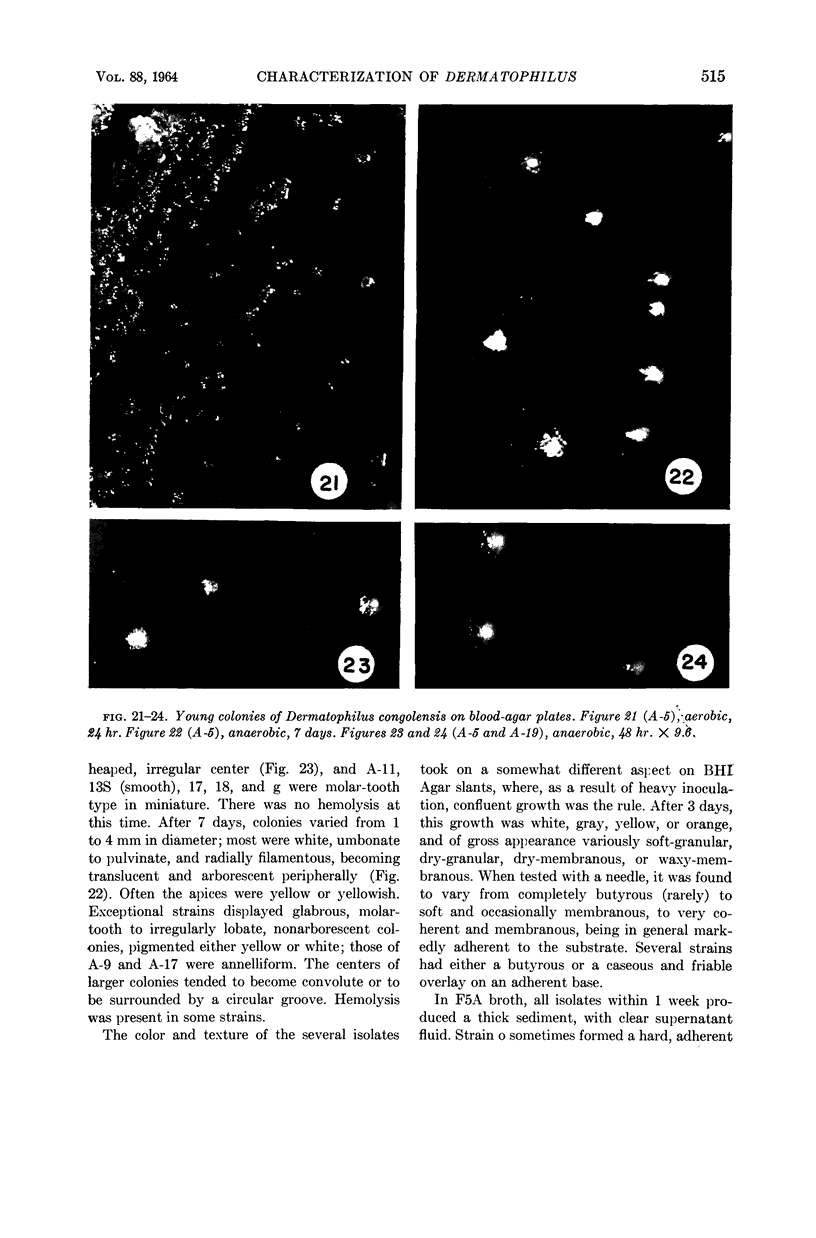
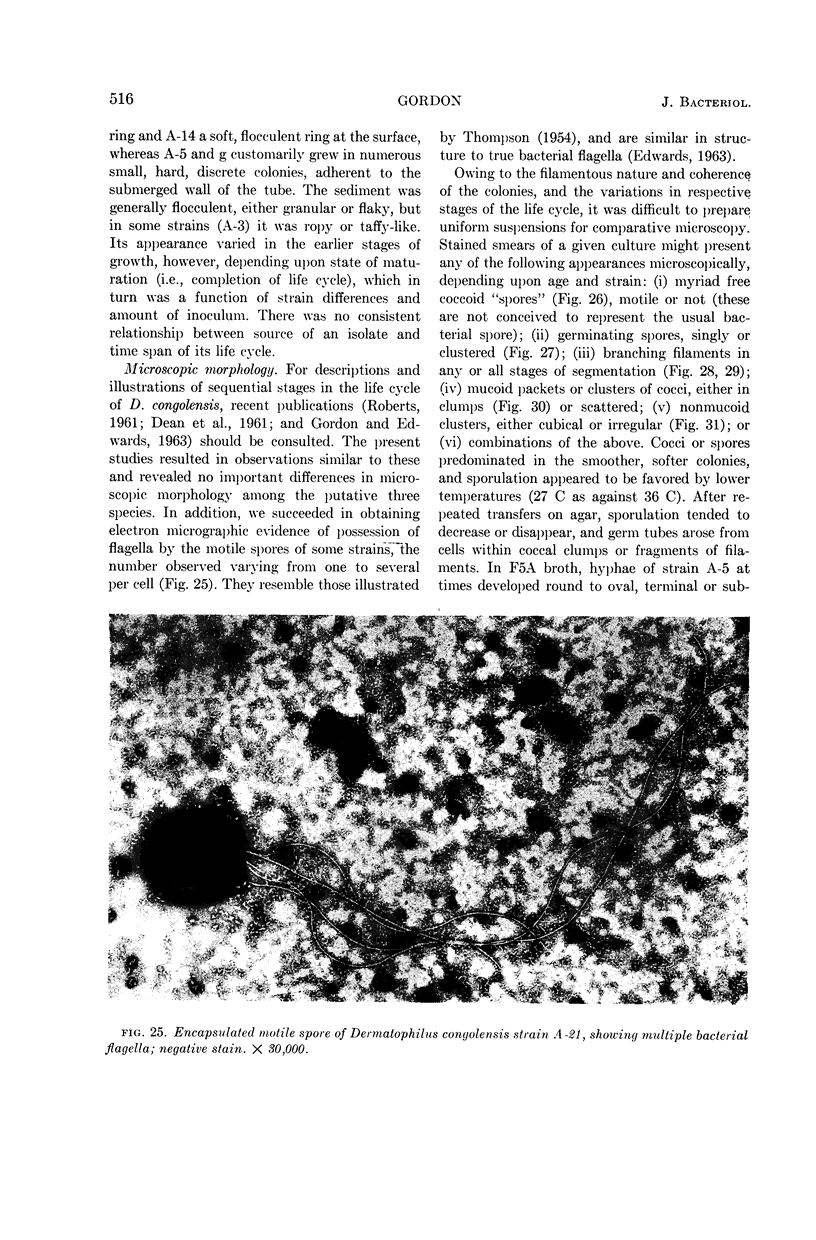
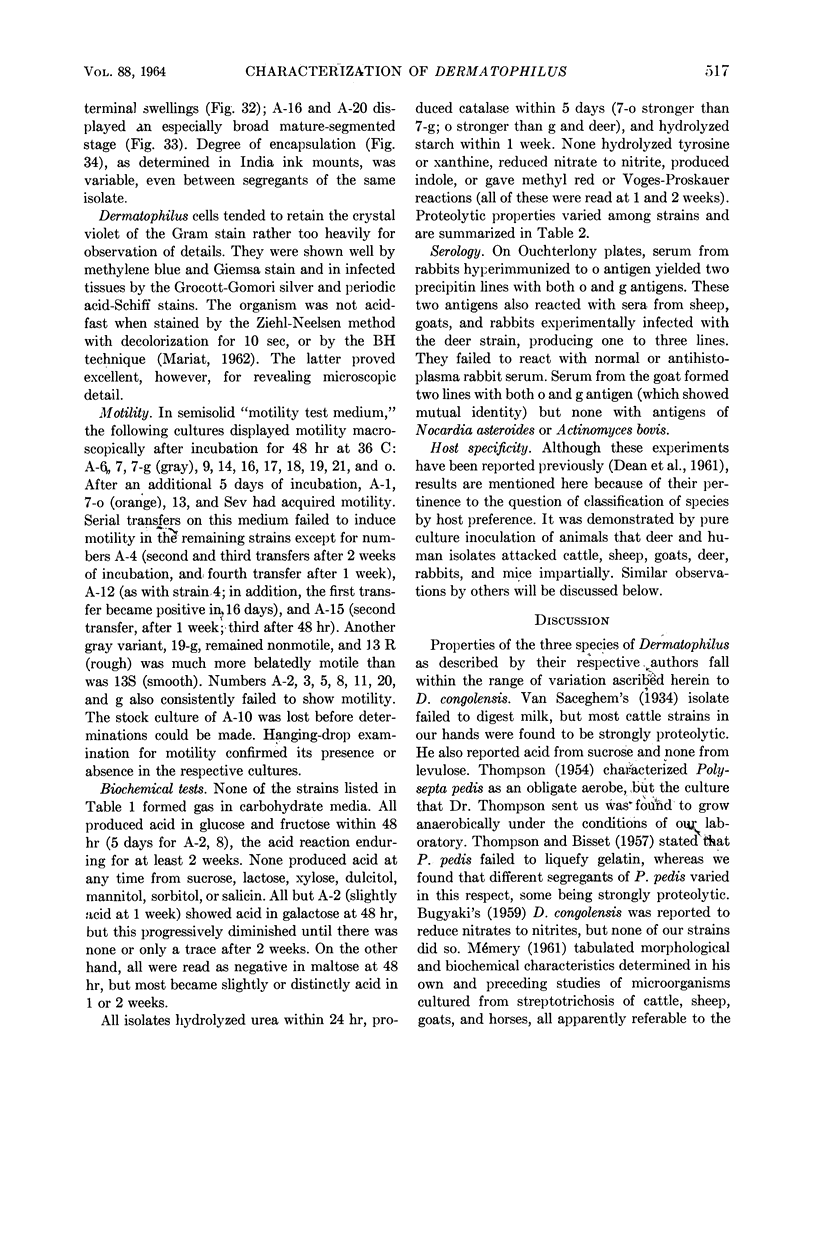
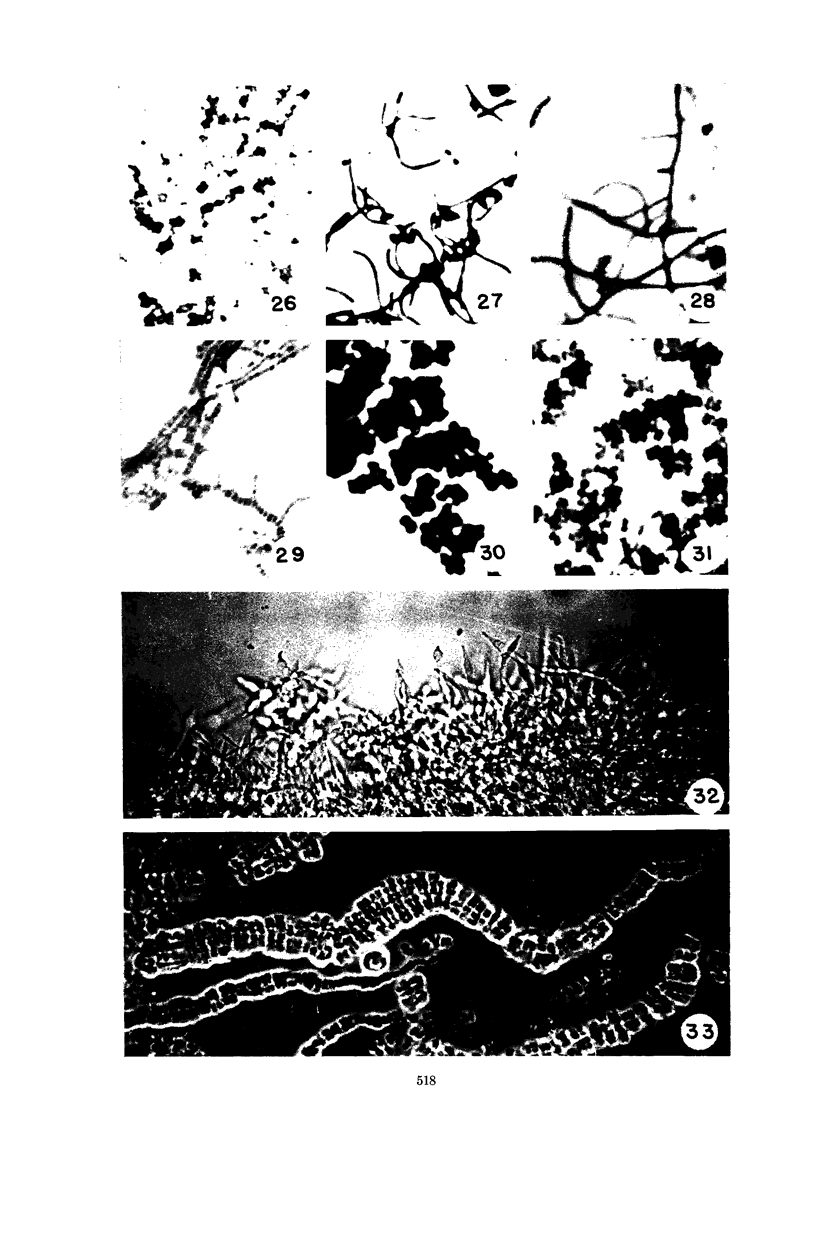
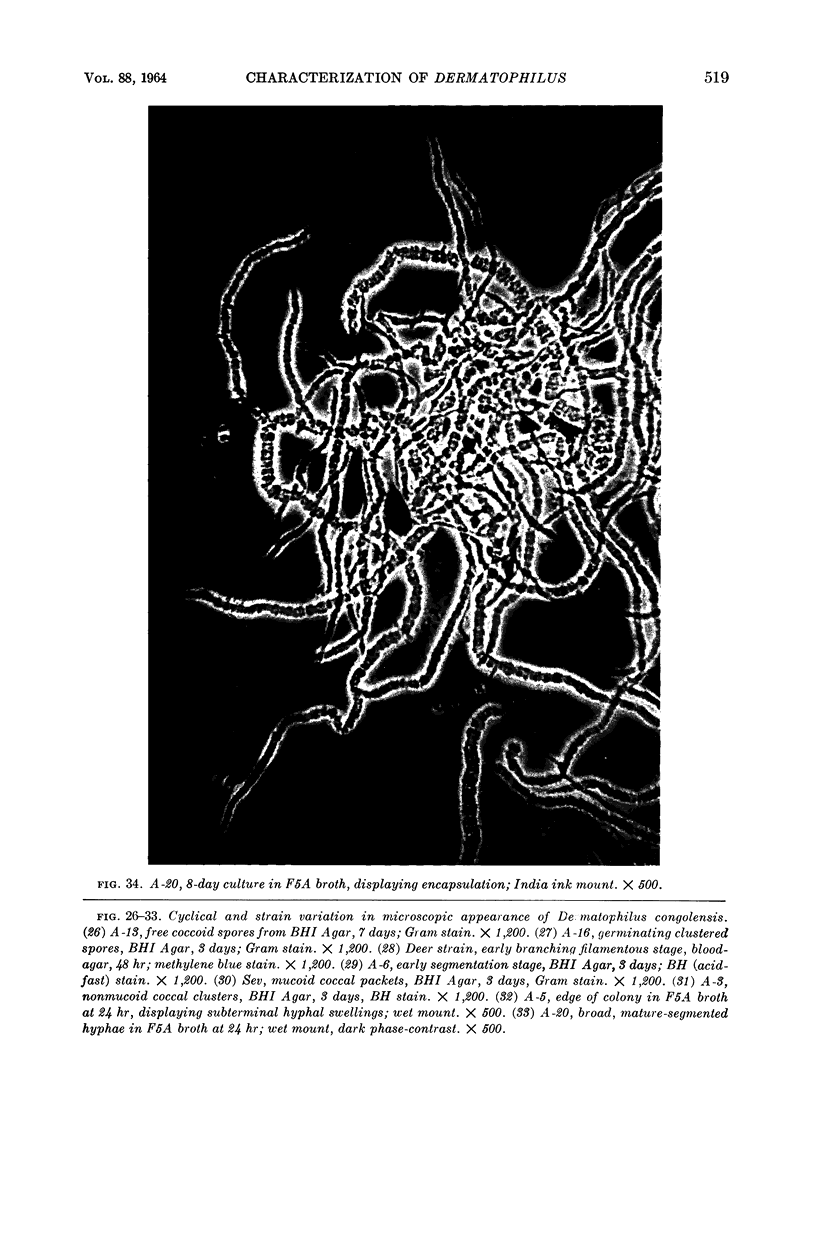
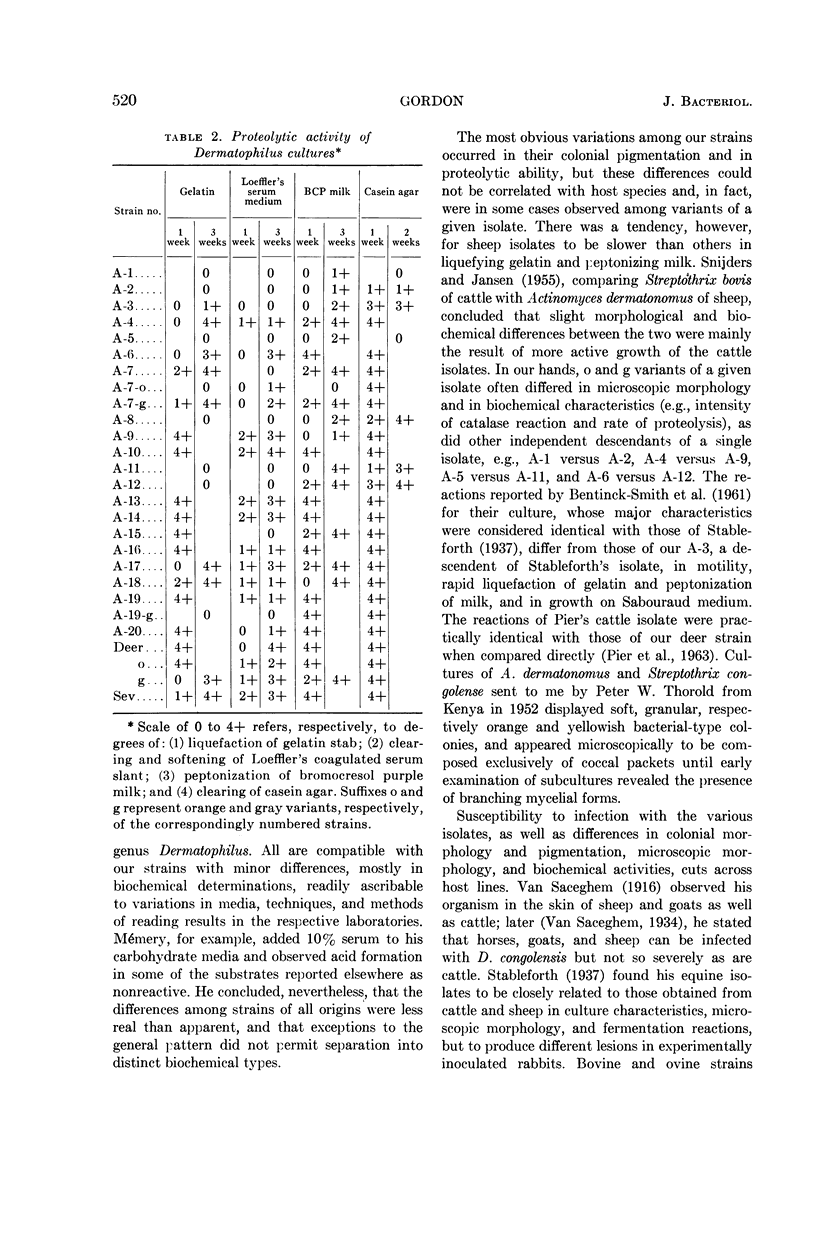
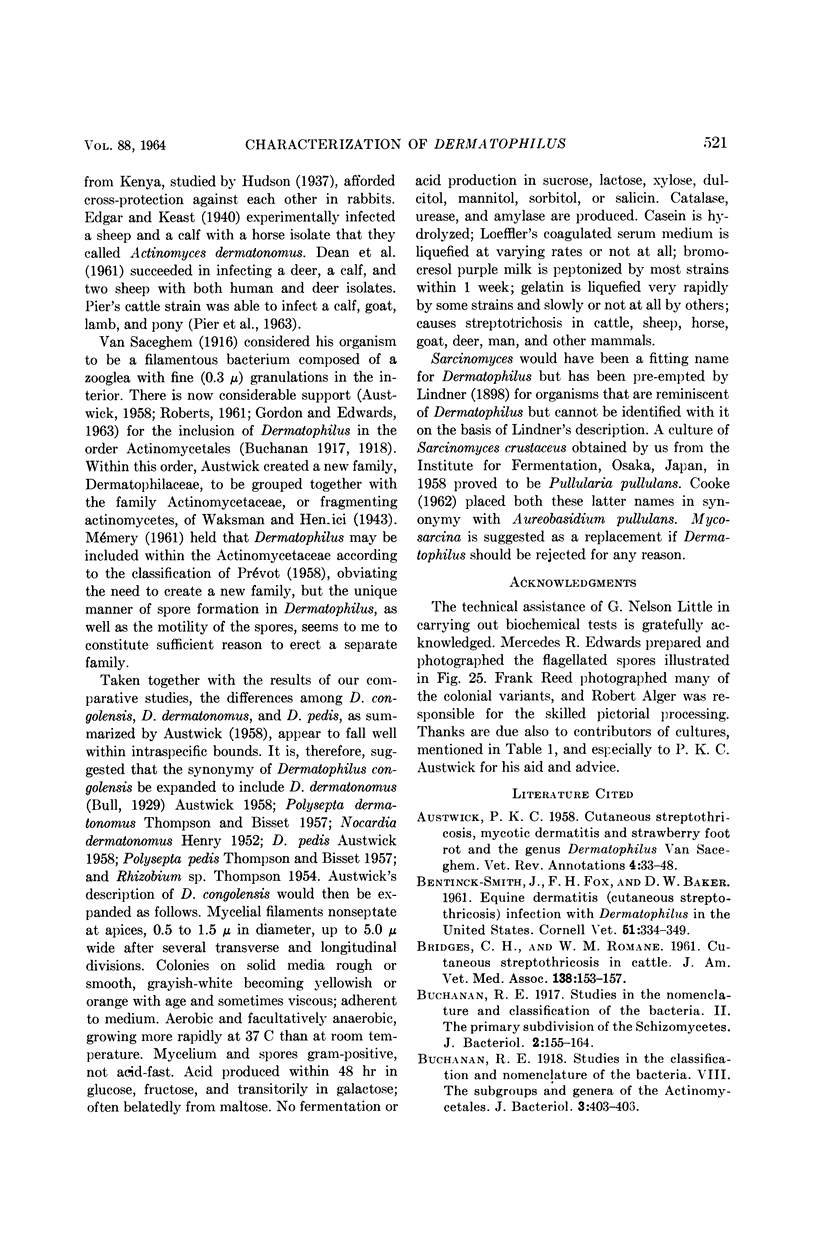
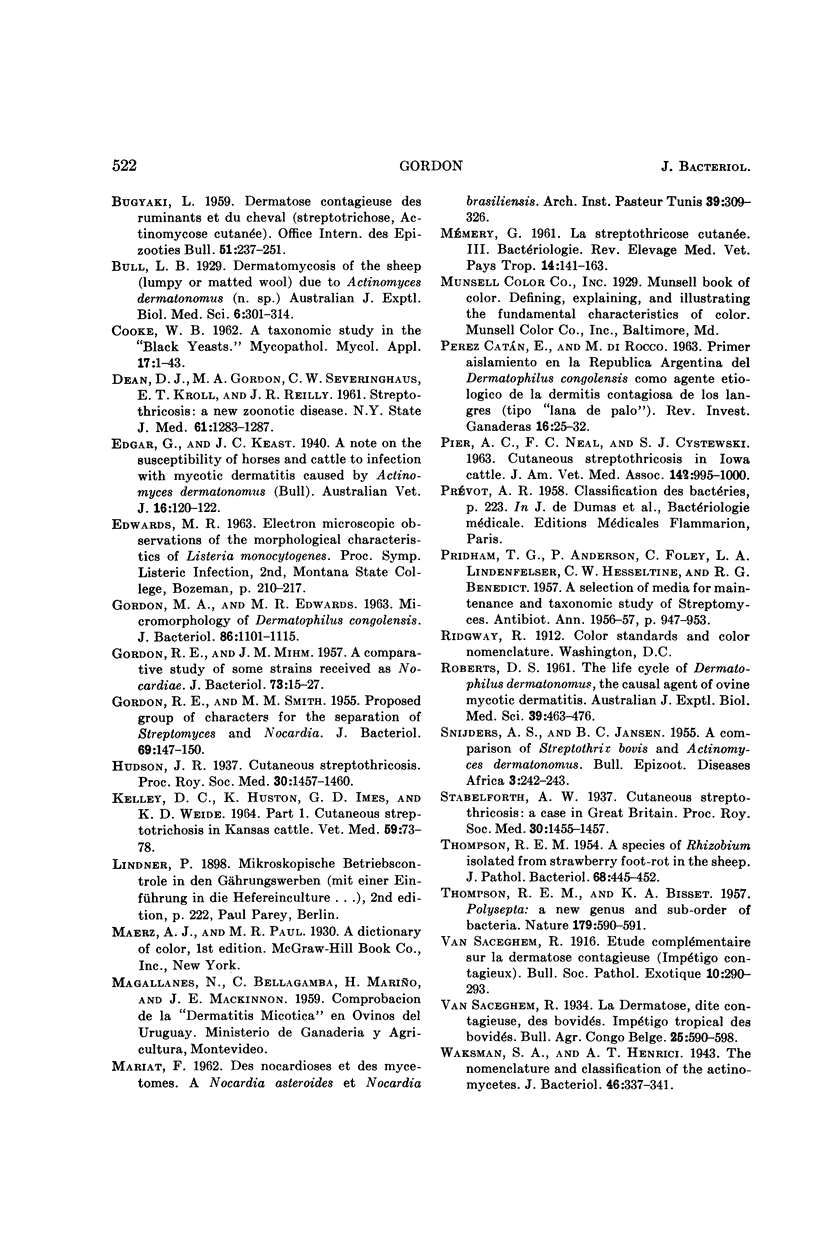
Images in this article
Selected References
These references are in PubMed. This may not be the complete list of references from this article.
- Buchanan R. E. Studies in the Nomenclature and Classification of the Bacteria: II. The Primary Subdivisions of the Schizomycetes. J Bacteriol. 1917 Mar;2(2):155–164. doi: 10.1128/jb.2.2.155-164.1917. [DOI] [PMC free article] [PubMed] [Google Scholar]
- Buchanan R. E. Studies in the Nomenclature and Classification of the Bacteria: VIII. The Subgroups and Genera of the Actinomycetales. J Bacteriol. 1918 Jul;3(4):403–406. doi: 10.1128/jb.3.4.403-406.1918. [DOI] [PMC free article] [PubMed] [Google Scholar]
- GORDON M. A., EDWARDS M. R. MICROMORPHOLOGY OF DERMATOPHILUS CONGOLENSIS. J Bacteriol. 1963 Nov;86:1101–1115. doi: 10.1128/jb.86.5.1101-1115.1963. [DOI] [PMC free article] [PubMed] [Google Scholar]
- GORDON R. E., MIHM J. M. A comparative study of some strains received as nocardiae. J Bacteriol. 1957 Jan;73(1):15–27. doi: 10.1128/jb.73.1.15-27.1957. [DOI] [PMC free article] [PubMed] [Google Scholar]
- GORDON R. E., SMITH M. M. Proposed group of characters for the separation of Streptomyces and Nocardia. J Bacteriol. 1955 Feb;69(2):147–150. doi: 10.1128/jb.69.2.147-150.1955. [DOI] [PMC free article] [PubMed] [Google Scholar]
- Hudson J. R. Cutaneous Streptothricosis: (Section of Comparative Medicine). Proc R Soc Med. 1937 Oct;30(12):1457–1460. [PMC free article] [PubMed] [Google Scholar]
- MARIAT F. [From nocardioses and mycetomas to Nocardia steroides and Nocardia brasiliensis]. Arch Inst Pasteur Tunis. 1962 Sep;39:309–326. [PubMed] [Google Scholar]
- PIER A. C., NEAL F. C., CYSEWSKI S. J. Cutaneous streptothricosis in Iowa cattle. J Am Vet Med Assoc. 1963 May 1;142:995–1000. [PubMed] [Google Scholar]
- PRIDHAM T. G., ANDERSON P., FOLEY C., LINDENFELSER L. A., HESSELTINE C. W., BENEDICT R. G. A selection of media for maintenance and taxonomic study of Streptomyces. Antibiot Annu. 1956:947–953. [PubMed] [Google Scholar]
- ROBERT D. S. The life cycle of Dermatophilus dermatonomus, the causal agent of ovine mycotic dermatitis. Aust J Exp Biol Med Sci. 1961 Oct;39:463–476. [PubMed] [Google Scholar]
- Stableforth A. W. Cutaneous Streptothricosis: A Case in Great Britain: (Section of Comparative Medicine). Proc R Soc Med. 1937 Oct;30(12):1455–1457. [PMC free article] [PubMed] [Google Scholar]
- THOMPSON R. E. A species of Rhizobium isolated from strawberry foot-rot in the sheep. J Pathol Bacteriol. 1954 Oct;68(2):445–452. doi: 10.1002/path.1700680218. [DOI] [PubMed] [Google Scholar]
- THOMPSON R. E., BISSET K. A. Polysepta: a new genus and sub-order of bacteria. Nature. 1957 Mar 16;179(4559):590–591. doi: 10.1038/179590a0. [DOI] [PubMed] [Google Scholar]
- Waksman S. A., Henrici A. T. The Nomenclature and Classification of the Actinomycetes. J Bacteriol. 1943 Oct;46(4):337–341. doi: 10.1128/jb.46.4.337-341.1943. [DOI] [PMC free article] [PubMed] [Google Scholar]



